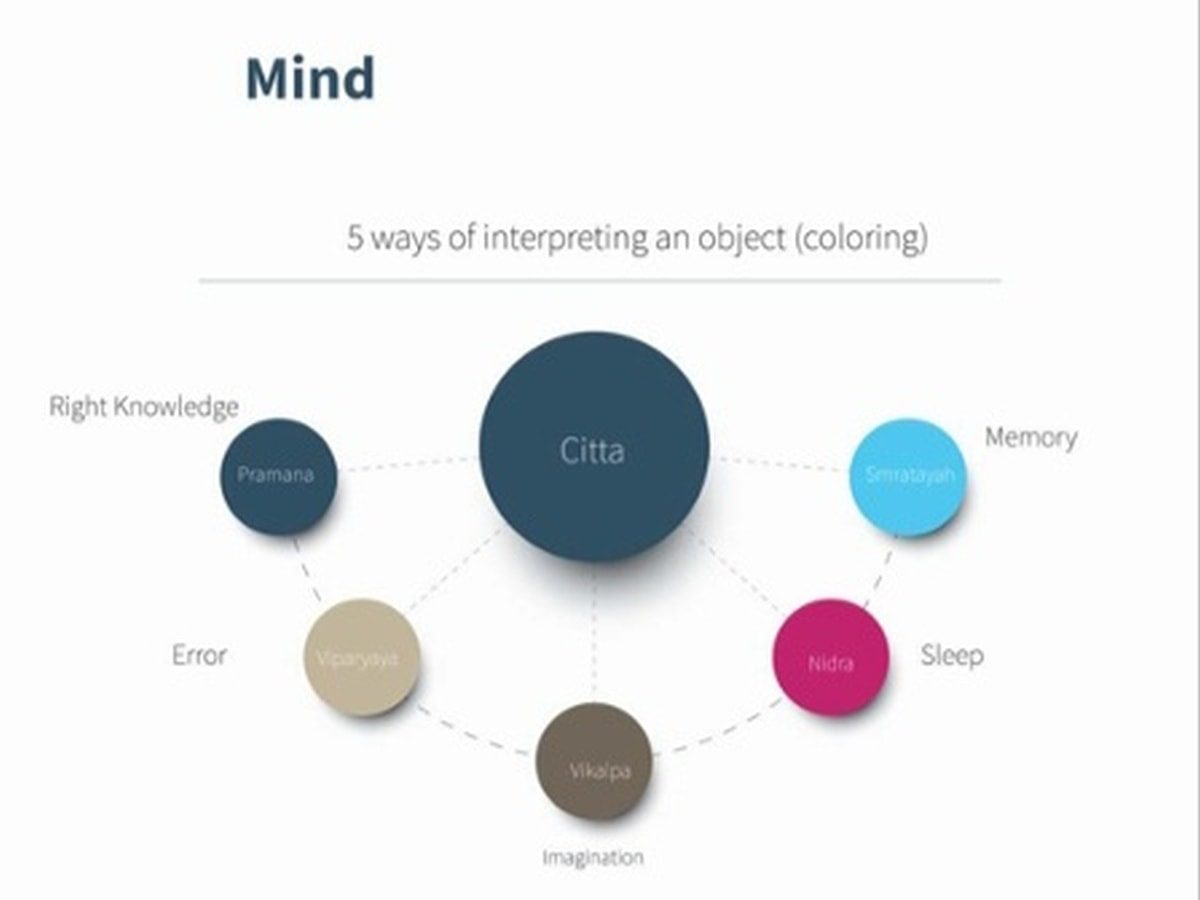What are the different types of thoughts do we have ?
Maharshi Patanjali explains in the yoga sutras that there are five types of thoughts, which can be classified as painful or non-painful. A yogi whose purpose of life is self-realization uses all his thoughts in pursuit of eternal happiness. The same thoughts, when not directed appropriately, can cause a lot of pain. These five types of thoughts are also the characters of intelligence.
Here are the five types of thoughts. We have explained the definition of the thought and then followed by the application of the thought process to intelligence.
Right knowledge:
when we understand an object from the right source, we can appreciate it correctly. Our understanding is backed up by proper evidence. An authentic source is key to appropriate knowledge. For things that cannot be ordinarily perceived by our senses, the proof is in the scriptures or the person who perceived it correctly.
How does this thought apply to intelligence?
Doubt is a character of good intelligence. We should, however, not doubt knowledge that is received from yogic masters or the scriptures. We should put that knowledge to practice and realize it. The proof is in the pudding, so a yogi tastes the practical benefits of that knowledge.
Error or Misunderstanding:
When we do not understand an object from the sound source, we can make mistakes. Our senses are subjected to illusion, and committing mistakes are a common tendency.
How does this thought apply to intelligence?
When our doubts are cleared by understanding scripture either by hearing from a genuine source or practical realization, the false understanding goes away. The yogi, by the application of yogic wisdom and scriptures, clears up any errors.
Imagination:
A thought without substance or any ground reality is called imagination. It is a state of mind that can be used effectively in meditation based on scriptures.
How does this thought apply to intelligence?
Imagination is a double-edged sword. There are two dreams, one is real, and one is imaginary. Patanjali Muni explains that one who thinks of this body as real and imagines the enjoyment based on this body will eventually suffer. However, a yogi who uses his imagination to meditate on spiritual mantras and meditation finally receives supreme blessings.
Sleep:
In sleep, we are practically non-existent. However, we are still active with some identity or forget ourselves completely in dreams or dreamless sleep, memories of which generally go away or remain with us for some time.
How does this thought apply to intelligence?
Adequate sleep is a character of good intelligence. Without sound sleep, one cannot feel refreshed or rejuvenated. Sleep in the mode of ignorance makes us tired, in the mode of passion is full of dreams and in the mode of goodness is dreamless, which makes us fresh.
Memory:
When an object or experience sticks to the mind, it is called memory. We do not remember everything that we do; however, some experiences linger in our minds for a long time, maybe even lifetimes.
How does this thought apply to intelligence?
A good memory is character of good intelligence. Without a good memory, we cannot have good intelligence.
All these five types of thoughts are the characteristics of intelligence. When the practice of yoga purifies these thoughts, it opens the doors to liberation.

